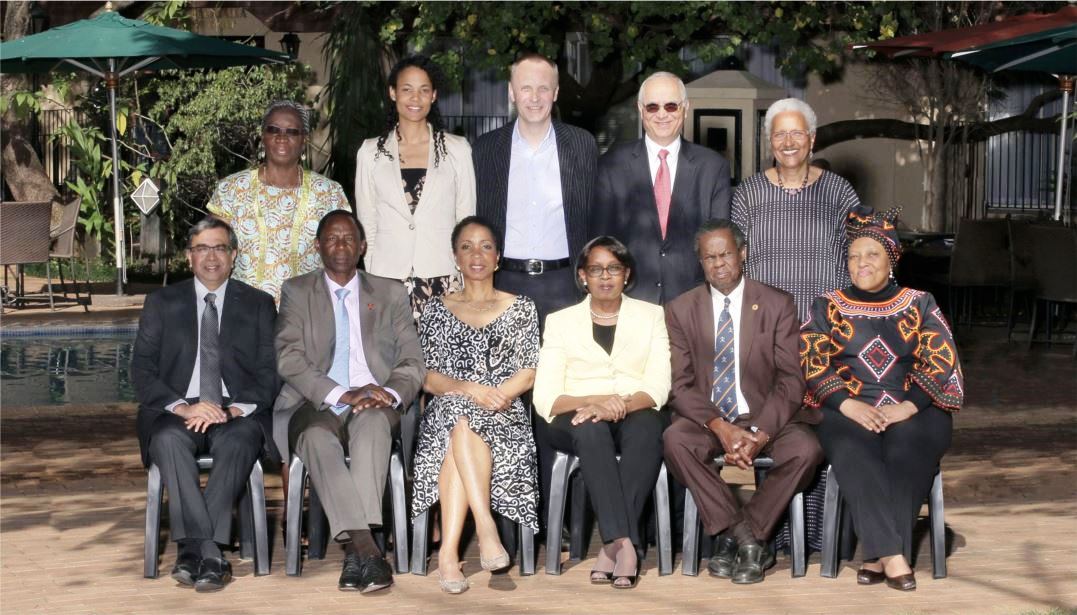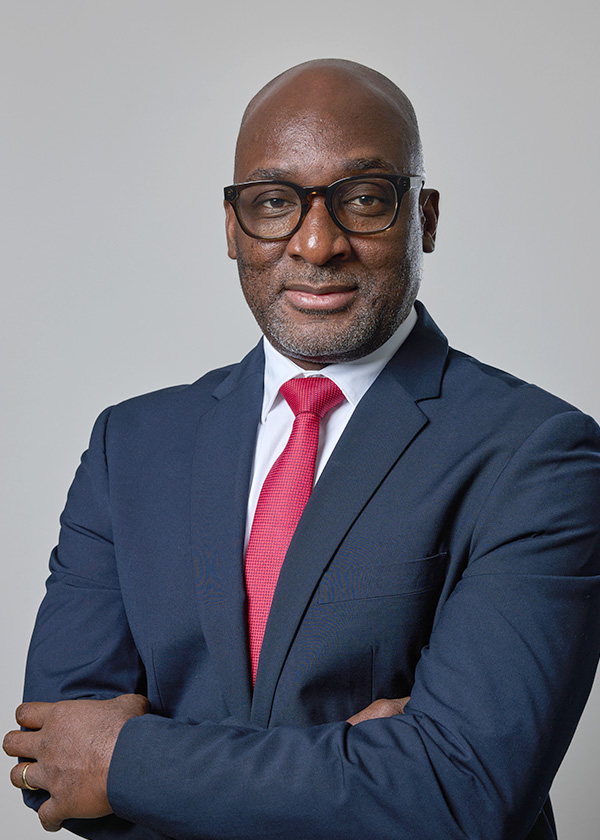Leadership
Directors
Managerial Organs
The functions of the Executive Management Committee are to:
- examine all issues related to policy and strategic orientations of the Regional Office, the regional programmes and programme budget;
- translate global policies, strategies and resolutions (of the Executive Board and the World Health Assembly) for regional implementation;
- provide orientation on the scope of work and content of Regional Programme Meetings;
- examine policy proposals from the Management Development Committee and give appropriate guidance; and
- review the preparation of Regional Committee and Programme Subcommittee meetings and provide orientation for the implementation of the Regional Committee's resolutions.
- provide orientations on the scope of work and content of Regional Programme
Meetings (RPMs). - examine policy proposals from the Management Development Committee (MDC) and give appropriate guidance.
- implement relevant decisions of GPG with regional interest.
- analyze and endorse reports of cross cutting committees or taskforce.
- advise the Regional Director on any other matters referred to the Committee.
Membership
The EXM is composed of:
- Chairperson: Regional Director
- Members:
- Director, Programme Management
- Assistant Regional Director
- Cluster Directors
- Secretary: Regional Director’s Cabinet Chief
- Other participants: Any other Regional Officers may be invited according to the agenda.
Operational procedures
The Committee meets under the Chairmanship of the Regional Director at least once a quarter.
The functions of the Management Development Committee are to:
- discuss the coordination of the activities of all clusters and common issues related to WHO programme budget, and the preparation and implementation of biennial work plans, in order to ensure that WHO's work in the region is efficient and effective;
- discuss cross-cutting matters, particularly those referred from the headquarters, so as to ensure comprehensiveness and consistency of Regional Office's response;
- coordinate and harmonize the implementation of the decisions of the Regional Director/Director-General;
- coordinate regional contributions to the global WHO programme budget and the deliberations of governing bodies;
- make policy proposals to the Executive Management Committee, including their resource implications;
- review the documents to be submitted to the Programme Subcommittee and the Regional Committee;
- monitor the implementation of the Regional Office's programme budget; and
- undertake any other functions assigned to it by the Regional Director.
The functions of the Monitoring and Evaluation Committee are to:
- monitor the delivery of WHO technical programmes in the region and identify constraints in related processes and/or procedures, and recommend appropriate actions to improve programme delivery;
- monitor and review the use of human and financial resources against planned services and results;
- review programme implementation reports and, when necessary, make recommendations for corrective action;
- review the performance of regional and country offices in the delivery of WHO technical programmes in the region and, when appropriate, make recommendations for resource re-allocation; and
- follow up the implementation of the recommendations of the Regional Programme Meeting.
The functions of the Regional Programme Meeting are to:
- consider the criteria and guidelines for preparation, implementation and evaluation of the regional programme and health development activities at country level;
- consider the extent to which international health coordination and technical cooperation activities at country level are relevant to and compatible with the policies laid down by the governing bodies of WHO and the executive heads of the WHO Secretariat, and to make proposals for correcting any inconsistencies so identified;
- propose the practical procedures for the elaboration, implementation and evaluation of the regional programme as a whole in line with Country Focus Policy and Country Cooperation Strategies;
- examine the programme budget proposals, with particular reference to the WHO's General Programme of Work, long-term plans, global strategies, and internationally agreed goals, as well as programmes arising from them, and make appropriate recommendations;
- propose measures aimed at ensuring the effective collaboration and coordination for health development between the various partners at regional and country levels; and
- carry out such other tasks as the Regional Director may entrust to the Committee Regional Programme Meeting.
Advisory Committees
In order to inform decision making on some specific issues with regard to the management of the Regional Office, the Regional Director may establish Ad Hoc and Standing Committees and designate their members. These committees serve in an advisory role in various matters such as: nominations for awards; selection, appointment or reassignment of staffs; facilitating of relations between the staff members and the Management; promotion of healthy and safe workplace.
The Regional Director may also establish Task Forces and Experts Committees. These are advisory groups aimed at providing technical advice on the strategic approaches and technical content of AFRO programmes for effective implementation in support to Member States. The Task Forces and Experts Committees relate to specific technical programmes.

The Regional Director constituted an Independent Advisory Group (IAG) to provide her with strategic and policy advice on how to strengthen WHO’s work in the African Region towards better delivery, a more results-driven approach and making the best use of internal and external resources and expertise.
2nd Meeting of the Independent Advisory Group (IAG)
English (564.08 kB) French (604.5 kB) Portuguese(615.41 kB)
Thumbs up for the transformation process in the WHO African Region
The African Advisory Committee for Research and Development provides advice to the Regional Director on matters of research related to health and development in the African Region.
More on the African Advisory Committee for Research and Development
AACEM was established in April 2006 to provide advice to the Regional Director on scientific, technical and programmatic matters related to sustainable malaria control in the African Region. The Committee is intended to provide:
- a platform for dialogue;
- consensus building on knowledge generation and use;
- scientific advice; and
- guidance on implementation and operationalization of policies.
The Committee is expected to meet annually from 2006 to 2011 and two-yearly thereafter.







